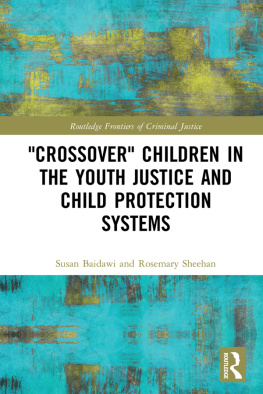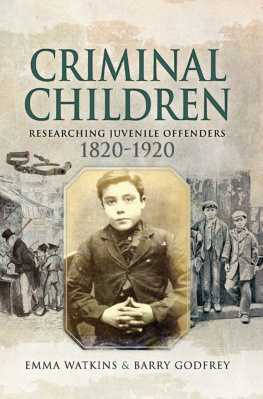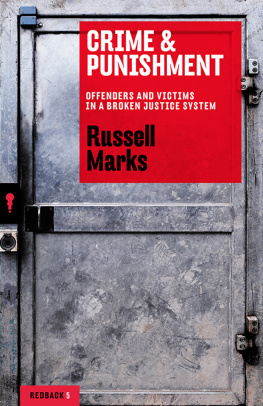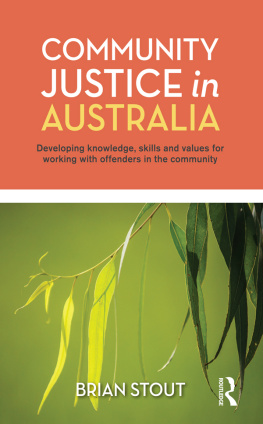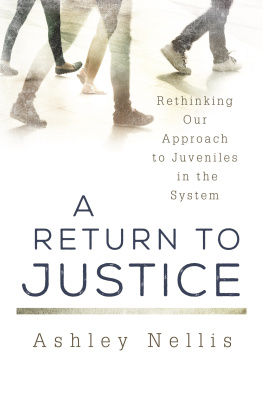
First published in Great Britain in 2015 by
Policy Press University of Bristol 1-9 Old Park Hill Bristol BS2 8BB UK Tel +44 (0)117 954 5940 e-mail
North American office: Policy Press c/o The University of Chicago Press 1427 East 60th Street Chicago, IL 60637, USA t: +1 773 702 7700 f: +1 773-702-9756 e:
Policy Press 2015
British Library Cataloguing in Publication Data
A catalogue record for this book is available from the British Library.
Library of Congress Cataloging-in-Publication Data
A catalog record for this book has been requested.
ISBN 978 1 44732 171 2 paperback
ISBN 978 1 44732 173 6 ePub
ISBN 978 1 44732 174 3 Kindle
The right of Kevin Haines and Stephen Case to be identified as authors of this work has been asserted by them in accordance with the Copyright, Designs and Patents Act 1988.
All rights reserved: no part of this publication may be reproduced, stored in a retrieval system, or transmitted in any form or by any means, electronic, mechanical, photocopying, recording, or otherwise without the prior permission of Policy Press.
The statements and opinions contained within this publication are solely those of the authors and not of the University of Bristol or Policy Press. The University of Bristol and Policy Press disclaim responsibility for any injury to persons or property resulting from any material published in this publication.
Policy Press works to counter discrimination on grounds of gender, race, disability, age and sexuality.
Cover design by Qube Design Associates, Bristol
Front cover: image kindly supplied by Getty Images
Readers Guide
This book has been optimised for PDA.
Tables may have been presented to accommodate this devices limitations.
Image presentation is limited by this devices limitations.
Contents
Kevin Haines is Professor of Youth Justice in the Department of Criminology at Swansea University. Kevin has published extensively on youth justice and childrens rights issues. He co-authored the seminal texts Young people and youth justice and Understanding youth offending: Risk factor research, policy and practice.
Stephen Case is Associate Professor in Criminal Justice and Criminology in the Department of Criminology at Swansea University. He has published in a range of international journals and conducted research for the Youth Justice Board, Home Office and Welsh Government.
This book is the product of a long-standing reflective research partnership between the authors, research colleagues at Swansea University Centre for Criminal Justice and Criminology and policy makers and practitioners primarily within and associated with Swansea youth offending team. Over a near 20-year period, the youth offending team has opened its doors and minds to researchers, offering unrivalled access to its steering group, senior management team, front-line practitioners, operational and strategic meetings, policy and practice documentation, statistical databases and, perhaps most importantly, to the children and families who have come into contact with the youth justice system. A series of long-term, reflective research and evaluation projects have resulted, with children, families, practitioners, policy makers and researchers working collaboratively to identify issues, strengthen relationships, improve practice and enhance outcomes for local children within and outwith the youth justice system. As researchers, we are acutely aware of the privileged position in which we find ourselves, thanks to the openness, honesty, integrity and insight of the staff at Swansea youth offending team and its partner agencies across the local authority area and further afield in Wales, along with those children and families who have offered their crucial perspectives and experiences. We offer profound thanks to those individuals and organisations for their dedicated and continued support, professionalism and contributions as our research partners.
It is absolutely essential that all professionals in the youth justice system (YJS) have a guiding philosophy of practice for their work with children; a sense of objective and purpose to frame and animate their knowledge and skills bases. Without a coherent and explicit philosophy, policies and practitioner knowledge are simply information and understanding; practitioner skills are simply abilities, expertise and techniques; lacking in foundation and application. A youth justice philosophy gives purpose to action [and] shapes the way in which we use knowledge and skills to achieve certain outcomes (Haines and Drakeford 1998: 69). Since the inception of a YJS in the UK and latterly in the constituent countries of the UK (England and Wales together, Scotland, Northern Ireland), youth justice policy and practice has been characterised by tensions between welfare principles and justice-based approaches to dealing with children in conflict with the law and the youth justice system (for a detailed historical account of the development of youth justice in England and Wales, see Muncie, Hughes and McLaughlin 2002; Newburn and Morgan 2007). These overarching philosophies have fluctuated between dominating youth justice priorities and each has been marginalised at the expense of the other, although elements of both have persisted in successive manifestations of policy and practice targeting children in conflict with the law and the youth justice system, rendering youth justice a messy, complex and contested domain (see Smith 2006).
The ambiguity and ambivalence that has pervaded youth justice in England and Wales was compounded from the late 1980s onwards by the emergence, on the one hand, of a corporatist philosophy that sought to engender multi-agency partnership working between youth justice stakeholders and to manage the YJS effectively and efficiently (see, for example, Pratt 1989) and New Orthodoxy (see, for example, Haines and Drakeford 1998) practice, on the other. A so-called third way approach (not welfare, not justice) to the delivery of youth justice emerged following the Misspent Youth report (Audit Commission 1996) and New Labours commitment to a managerialist,1 actuarialist risk agenda manifested in risk assessment and risk-led intervention (see Smith 2006; Case and Haines 2009). This book offers an extensive critique of the contemporary managerialist, risk-based model of youth justice that dominate and shape practice; making a detailed, evidence-informed case for a new model of youth justice founded on a Children First, Offenders Second (CFOS) philosophy. The proposed model of positive youth justice, CFOS, is driven by systems management and child-friendly and child-appropriate techniques and is committed to the principles of enabling children to access and actualise their rights and entitlements, to achieve social inclusion through participation and engagement principles that have informed and guided elements of (inter)national policies and practices for working with children since the 1980s and to enhance positive outcomes for children.
A brief history of progressive-regressive youth justice agendas
In order to understand the genesis and development of CFOS, it is helpful to briefly review some of the major themes and developments in youth justice that preceded it. In the 1980s, a diverse group of academic critics, senior civil servants and innovative youth justice practitioners began to gain a foothold by consistently warning against the damaging effects of formal state intervention on the lives of children, while proffering strong support for changes to youth justice practice, based on:



